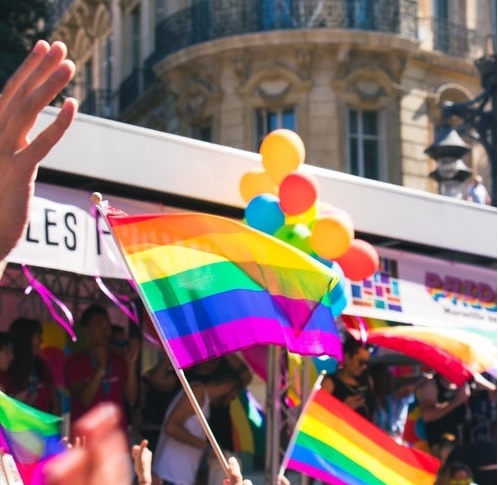Versi Bh. Indonesia
Wisnu Adihartono
Being a gay person in Indonesia is not easy. Many Indonesians believe that being gay is a disease and that violence against gay men is acceptable. Since 2016, the situation for gay men has become worse. As a result, some gay men who have the resources leave Indonesia for other countries, including France. As part of my PhD research in France, I interviewed 25 gay Indonesian men living in Paris. All names are pseudonyms.
In Paris there are number of gay hangouts, such as Le Marais and the area around Hôtel de Ville. Gay men I met there told me they had found a sense of freedom and belonging that they could only dream of in Indonesia.
When Bambang finished high school in Yogyakarta, he successfully applied for a university scholarship in Paris. He said:
‘I don’t know why Paris. What I do know, because I speak French, is that French is a sexy language. Before leaving, I imagined Paris as the city of the Eiffel Tower. That's all I knew.’
When Bambang arrived in Paris he did not know if it was a gay-friendly city. But after five years of living there, and after coming out as gay, he said he felt a sense of freedom and acceptance that he could not find in Indonesia. Now with a French boyfriend, Bambang knows he can’t return to Indonesia:
‘Indonesia is not a country for LGBT people. We were discriminated against. Just look at Aceh. It’s terrible. If the Indonesian government is willing to change the regulations, we will return.’
Gay life in Paris
Hendri has lived in Paris for several years. He says he has relationships with French men, not Indonesian men.
‘I prefer to hang out with French gays. Why? I find gay Indonesians lie and talk about meaningless things (mengatakan yang tidak-tidak). I only meet other Indonesians when there is an event at the Indonesian Embassy.’
One of the tensions that can arise in relationships between Indonesian men is the issue of religion. Some participants told me that they prefer relationships with French men because then they don’t argue about religion. For instance, Adi said he prefers to date French men who do not have a religion.
‘Indonesian people are hypocritical when talking about religion. They say everything is taboo or forbidden, and that God created only men and women. But what about lesbian, gay and transgender people?’
Abimanyu said that he felt France was more tolerant of religious diversity than Indonesia:
‘I am a Muslim and I often go to Christian events here in Paris. We do not feel disturbed by such things. I hope that this also happens in Indonesia. But I think it does not. I see on the internet that violence in the name of religion is increasing in Indonesia.’
There is racism and homophobia in France but Abimanyu believes that it is a more tolerant place than Indonesia.
The men I met were keen to present a good image of France, and they said that they were respected for being gay. For instance, Sa’id said:
‘French people are respectful of men, women, gays, lesbians and even trans people. Although sometimes I see on television or read in the newspaper there is harassment against people like us, it is nothing compared to what happens in Indonesia. I am also happy that French people do not ask about your religion. For them, religion is a sensitive and private matter.’
Even though the gay men I met in Paris are sad that they are far from family and friends, they like the fact that they can live openly as gay men. As persecution is increasing for LGBT people in Indonesia it is unlikely they will return in the near future.
Wisnu Adihartono completed his PhD in Sociology at the Ecole des Hautes Etudes en Sciences Sociales (EHESS) in Marseille, France. Now he is an independent researcher in Jakarta.
